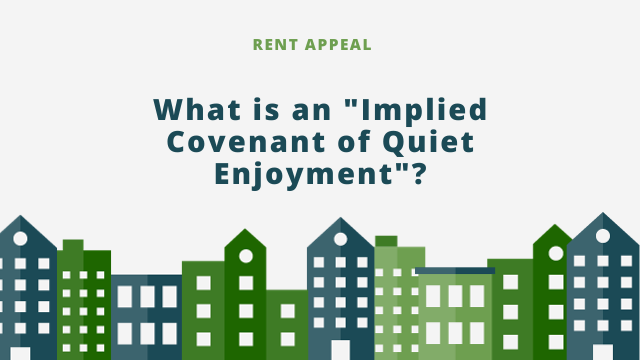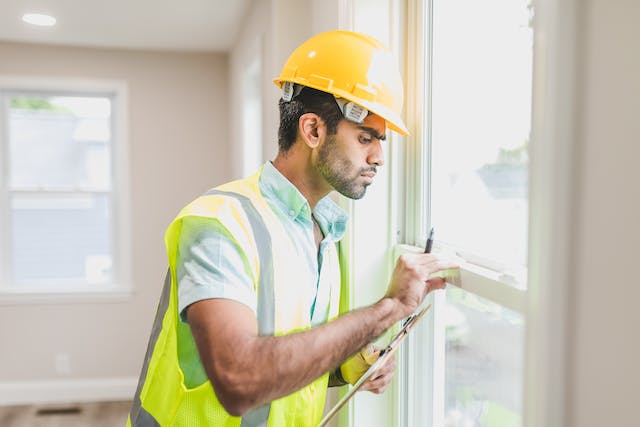 Leases do not explicitly state the renter’s right to quiet enjoyment as a resident, but this is an implied covenant. Meaning it is not a necessity to express it in writing on the contract, renters should be able to enjoy peace while staying in your rental.
If you want to attract renters for the long term, you must ensure that disturbances and noise are minimal or prevented as much as possible. The renters may not renew due to a lot of noise or violation of their privacy, resulting in a vacant rental.
In this guide, Rent Appeal will help you understand how to avoid these situations by learning what the “implied covenant of quiet enjoyment” entails as a landlord’s responsibility.
Leases do not explicitly state the renter’s right to quiet enjoyment as a resident, but this is an implied covenant. Meaning it is not a necessity to express it in writing on the contract, renters should be able to enjoy peace while staying in your rental.
If you want to attract renters for the long term, you must ensure that disturbances and noise are minimal or prevented as much as possible. The renters may not renew due to a lot of noise or violation of their privacy, resulting in a vacant rental.
In this guide, Rent Appeal will help you understand how to avoid these situations by learning what the “implied covenant of quiet enjoyment” entails as a landlord’s responsibility.
What is an “Implied Covenant”?
When we say that something is implied in a lease agreement, it means that it is not specifically written down. However, landlords still cannot ask renters to surrender their rights to an implied covenant as they must fulfill this duty.What is “Quiet Enjoyment”?
Renters enjoy two basic rights under a lease agreement. They have the right to- stay in a safe and habitable rental space
- enjoy the quiet while staying in the rental unit
 Under the rental agreement, landlords must ensure the following:
Under the rental agreement, landlords must ensure the following:
- Renters have reasonable peace, privacy, and comfort from the landlord and disruptive situations must be kept at a minimum
- Tenants are allowed the private use of the rental space and you must provide a notice to enter the rental during a scheduled property inspection or required property maintenance.
- Tenants are offered a secure and safe rental unit. You must set up security systems to protect renters from trespassers and burglars to maintain peace.
- Renters can enjoy home systems in excellent order and basic utilities are available.
When Can Landlords Enter A Rental Unit?
Landlords cannot freely access the rental unit whenever they want to. Under state laws, they can only enter when:- The ending of the lease is near. You can start conducting move-out inspections to check out the property damage and evaluate if it’s due to wear and tear.
- Repairs need to be done. This task is in keeping with a landlord’s responsibilities.
- When property updates are added, such as replacing the air conditioning unit or installing new bathroom fixtures.
- The tenant requests property maintenance and the landlord agrees to perform these vital services, such as pest control or mold remediation.
- A tenant needs to be evicted after being given a notice, and a law enforcer is present.
- The renter has abandoned the rental property.
- A landlord schedules a property showing to prospective renters since the current resident won’t be signing a lease renewal.
- A court order is issued.
 State regulations differ but usually, the covered periods that landlords can enter the rental unit are normal business hours, from 9am to 6pm. The only time when you are allowed not to send a notice, are during property emergencies, like a fire breaking out, heavy flooding or gas leaking.
State regulations differ but usually, the covered periods that landlords can enter the rental unit are normal business hours, from 9am to 6pm. The only time when you are allowed not to send a notice, are during property emergencies, like a fire breaking out, heavy flooding or gas leaking.
When is the Covenant of Quiet Enjoyment Commonly Violated?
Landlords must ensure that the renters’ quiet enjoyment is honored at all times. They should try to limit this by avoiding doing the following:- heading to the rental property with no notice sent to the residents
- snooping around the unit and the renters’ possessions
- failing to stop disruptive noises and nuisance behavior
- harassing tenants through the phone or in person
- restricting vital utility services, such as water and electric supply to get the renter to move out
- not providing the services they stated in the lease
- not scheduling property repairs, causing possible threat to the health and safety of the residents
- restricting renters to welcome visitors in the rental unit
- noise emitted by crickets, birds, and other wildlife creatures
- repair and maintenance duties

- calls to collect the overdue rent
- sounds of footsteps from the renters occupying the upper floor

